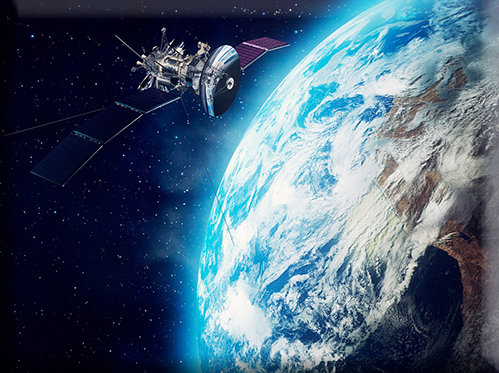
The battlefields of the future are no longer confined to land, sea, or air. As space increasingly becomes a critical domain for military operations, the U.S. Army is rapidly expanding its space warfare capabilities, sparking debate over its evolving role and potential overlap with the newly established Space Force.
Ukraine Conflict Highlights Space Vulnerability
The ongoing conflict in Ukraine has provided a lesson in the vulnerability of space-based assets. Russia’s aggressive use of jamming technology to disrupt Ukrainian communications and navigation has underscored the potential for space warfare to disrupt military operations on the ground.
Speaking at the recent Air & Space Power Association’s Defense Space Conference in London, Gen. Stephen Whiting, head of U.S. Space Command, warned, “Russia’s aggression shows that forces on land, at sea and in the air can no longer move or conceal themselves without being tracked and targeted from space or by space-enabled systems.”
Army Seeks to “Seize the Initiative” in Space
In response to these evolving threats, the Army is taking significant steps to bolster its space expertise and develop counter-space capabilities. The service, already the military’s largest consumer of space-based services, is seeking to shift from a passive user to an active player in the space domain.
“The Army has to be able to mitigate risks from dependencies on space while seizing the initiative to exploit adversaries’ use of space,” said Lt. Col. Joe Mroszczyk, commander of the U.S. Army’s 1st Multi-Domain Effects Battalion.
This includes developing new weapons systems capable of disrupting or destroying enemy satellites, as well as training soldiers to operate in environments where satellite communications and navigation are compromised.
New Training Programs Emphasize Space Expertise
Recognizing the need for widespread space literacy within its ranks, the Army is significantly expanding its space-focused training programs. Col. Donald Brooks, commandant of the Army’s Space and Missile Defense Center of Excellence, highlighted the surge in soldiers seeking space training.
“Every year, thousands of soldiers come through our doors to learn about the vital role space plays in modern warfare,” Brooks said. Over the last five years, over 30,000 soldiers have participated in the program, along with members from the Marine Corps, Navy, and international allies.
Army Unveils Bold “Space Vision”
The Army’s commitment to space warfare was further solidified in January with the publication of its “Space Vision” document. This strategic roadmap outlines the service’s ambition to develop offensive space capabilities, including weapons systems designed to “interdict or disrupt” adversary satellites.
This move has sparked debate about potential mission overlap with the U.S. Space Force, established in 2019 to consolidate military space operations.
Collaboration or Competition?
The Mitchell Institute for Aerospace Studies, a prominent think tank, has criticized the Army’s space ambitions, arguing that they duplicate the Space Force’s mission and risk inefficient resource use.
However, both Army and Space Force leadership have downplayed concerns about competition, emphasizing the need for collaboration and shared expertise.
“Space is an important domain for all the other domains… It’s not a competition. We’re all in this together,” said Gen. Chance Saltzman, the Space Force’s chief of space operations.
Saltzman acknowledged the need for careful resource allocation but expressed confidence that the services can work together to ensure the U.S. maintains its military advantage in space.
Adapting to the New Battlefield
As space becomes increasingly contested, the Army’s push to enhance its space capabilities reflects a recognition that the battles of the future will be fought not only on land but also in orbit. While questions remain about the precise division of labor between the services, one thing is clear: space is now a fundamental element of modern warfare, and the Army is determined to be a major player in this new frontier.
